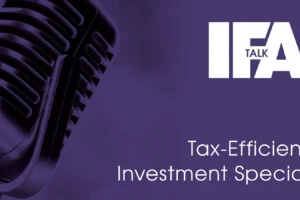The UK’s leading cash deposit platform, Flagstone, has compiled a study into modern-day early retirement, finding out where in the UK want to retire early, data on the average pension pot size by age as well as further statistics on the percentage of Brits who have not thought about how many years retirement they need to fund.
With more than a fifth of British adults borrowing more money because of the increased cost of living in 2023, economic uncertainty has significantly impacted the UK’s financial wellbeing. These financial pressures may cause you to doubt whether your pension pot will serve you during your retirement. And after decades of hard work, you deserve a retirement that both serves and rewards you.
In 2022, 33% of 50-64 year olds were recorded as retired – a slight but noticeable decline from 34% in 2021. If you’re looking to retire before the state pension age of 66, you may be questioning the feasibility of early retirement and the earning potential of your pension.
Your golden years should be something you look forward to, and being well equipped to deal with your retirement planning can alleviate any worries you may have. This guide will explore how inflation and economic change can impact your pension and financial planning for retirement.
Deciding when you might want or need to retire
When deciding when you want or need to stop working, it’s important to calculate when you can afford to retire and if you’re ready to say goodbye to the working world for good.
60% of Britain’s labour force have retired between the ages of 65 and 69, while others choose to retire as soon as they reach the minimum pension age of 55. Remember the age you choose to retire is your decision alone – perhaps you’re financially comfortable and ready to embrace retirement, or maybe you love your job and don’t feel ready to give up work just yet. Whatever your circumstances, it’s important that you’re both financially and emotionally prepared for your next chapter.
Recent industry changes
For many, retiring at 55 has been the goal since the government introduced the Pension Freedoms legislation in 2015. This allows you to access as much of your savings as you wish from a defined contributions pension scheme from the age of 55.
But from 2028 onwards the pension freedom age will increase to 57 which may affect your retirement plans. Those who are a few years away from 55 and plan to stop working may need to reconsider their financial planning for retirement, in alignment with this new legislation. Only 6% of those employed in the UK have more than one pension type – it may be worth you diversifying your investment options to reach your retirement goals.
Can I withdraw my private pension before 55?
Whether you can withdraw your private pension early depends on your provider. Some private schemes allow you to take money out before you’re 55 (aged 57 from 2028), but will charge you a penalty fee. You’ll also receive an income tax bill of 55% from HMRC which could drastically affect your future plans.
With this in mind, you may prefer to wait until the minimum pension age before you withdraw your money, to protect your investment value.
Semi-retirement
If you’re not ready to give up work completely but would value a more relaxed lifestyle, semi-retirement may suit you. This involves transitioning to fewer working hours, or taking on a less demanding job so you can unwind at the end of the day. By doing so, you can adjust to a slower pace of life to prepare for complete retirement later on. Semi-retirement may also help you to save for your retirement for longer and contribute more to your pension.
Early retirement
Early retirement
What is considered early retirement has changed over time with the rising state pension age. For both men and women, this is currently 66 years old but is scheduled to rise to age 67 between 2026 and 2028. With this in mind, early retirement could be anything before 66 years old, but is often viewed as retiring during your 50s. And when it comes to the cities in the UK most interested in FIRE (financial independence, retire early), the north seemed more eager to retire early. Manchester came out on top with 759 FIRE-related searches per year, per 100,000 residents.
Methodology for the UK cities most interested in FIRE
We took the top 20 most populated locations of the UK, and focused on the 18 cities to ensure a comparative dataset. The two lowest populated cities were excluded due to low search volumes and not enough data being available.
Search volumes from the past 12 months for the top 20 keywords related to FIRE were analysed for each location, with annual totals taken for each location. Totals were then adjusted per 100,000 people to allow comparison between cities. Population data was taken from worldpopulationreview.com for both the seedlist of top locations analysed and the adjustment of searches per 100,000 people.
Your retirement income options
If you have a defined contribution pension, where contributions are made over time by both you and your employer, you can choose how you’ll receive an income from it.
You can decide whether you want to:
- Draw money from your pension fund to give you an income, known as income drawdown or flexible retirement income. This approach allows the remaining amount to still be invested, giving it the opportunity to grow in value.
- Use some of your pension fund to buy short-term annuities to give you an income. An annuity is a financial product that ensures you’ll have a lifetime income, in return for a lump sum payment. While an annuity is taxable, you’ll gain 25% tax-free as a one-off lump sum.
Setting goals and making your retirement plan
Establishing a retirement plan can help you evaluate your financial situation and feel excited for the future. Here are some steps you can take to prepare for your next chapter, to help alleviate any anxieties.
1. Calculate the income you’ll need: As mentioned, it’s important to estimate the amount of money you’ll need to live on when you retire. Try and make a budget broken down by essentials and luxury costs – the bills you have to pay and any holidays or leisure activities.
2. Estimate your retirement income: Calculate how much money you’re likely to have once you retire. Getting a State Pension statement is a good place to start – this will give you an idea of how much State Pension you’ll receive. Next, you can check how much is in your pension pot (if you have a workplace pension and private pension, make sure to check both). Finally, make sure to track any lost pensions you may have forgotten about. You can use the government’s Pension Tracing Service to identify any pensions you’ve misplaced, both workplace and private.
3. Decide on your timeline: Are you looking to retire at a specific age, or will you reduce your hours and retire gradually through semi-retirement? Setting a timeline can give you a goal and timescale to work towards.
How does your current pension pot compare to others your age? Take a look at the average pension pot based on age and employment status below.















